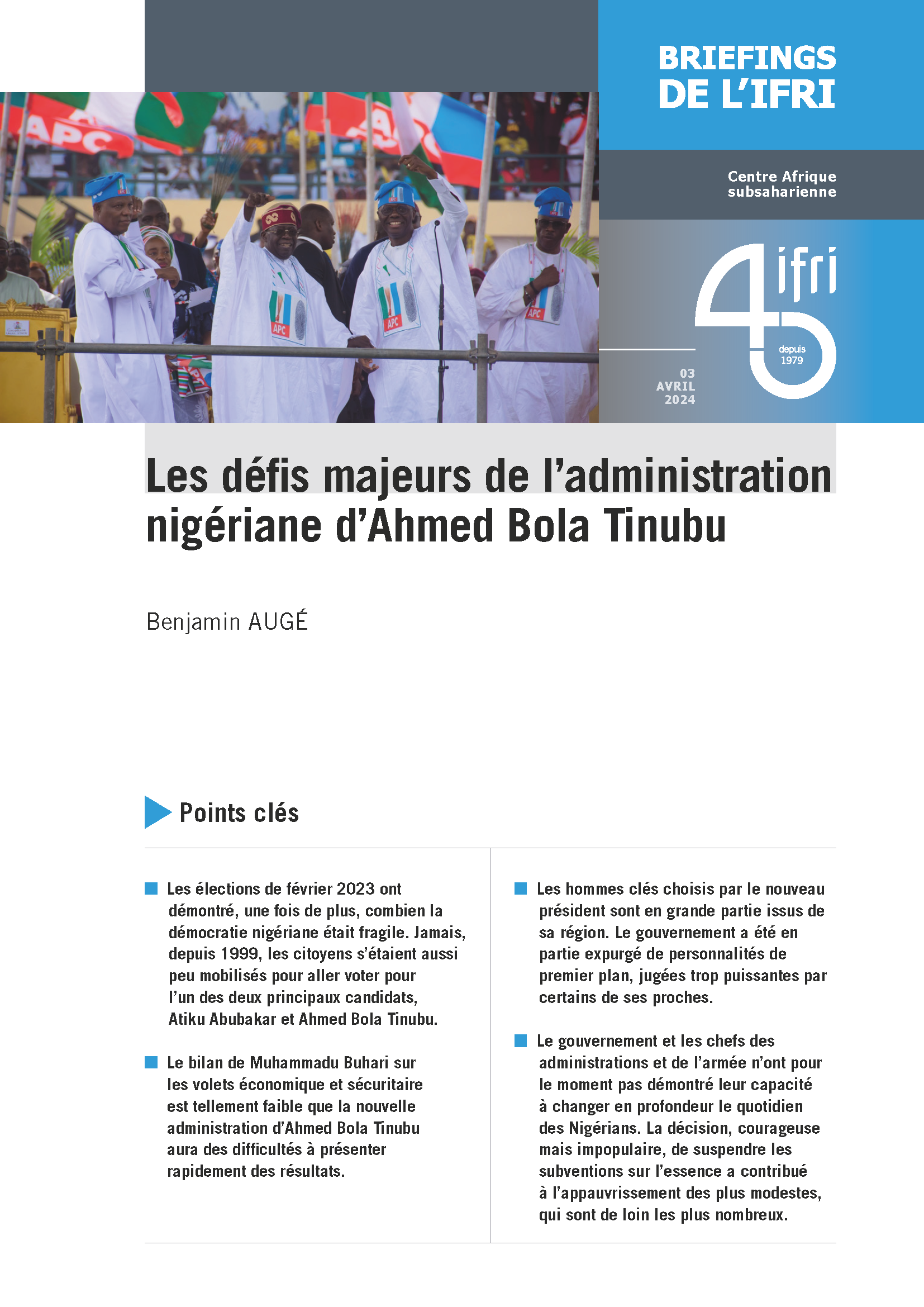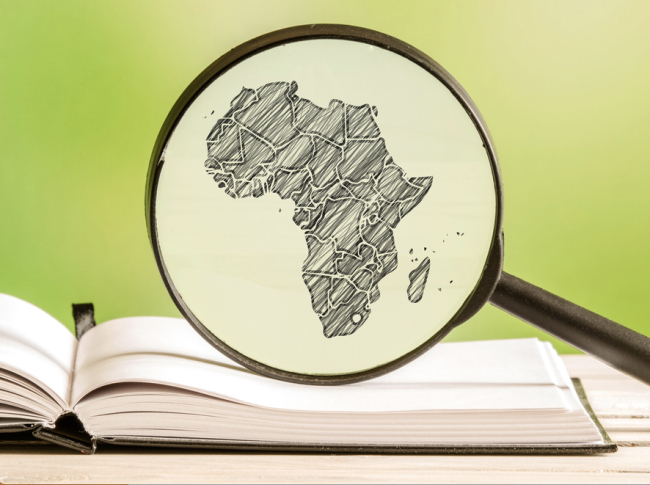The Major Challenges of Ahmed Bola Tinubu's Nigerian Administration

Voter turnout for Nigeria's presidential elections in February-March 2023 has never been so low since the country's return to democracy in 1999. Nigeria's new president, Ahmed Bola Tinubu, must now reassure voters that Africa's leading economy is capable of putting the lie to a persistent image of a country in decline.

Economic growth of 3.3% in 2022 (compared with 3.6% in 2021 and -1.8% in 2020) will benefit only a minority, while a growing majority of the population (63% in 2023) will be living in poverty. This difficult economic and social climate is taking place against a backdrop of steadily declining oil production (from 2.3 million barrels per day to 1.3 million barrels per day between 2003 and 2022). With oil sales financing almost two-thirds of the federal budget, this decline further reduces the federal government's scope for investment and limits financial transfers to the 36 federated states and 774 local governments.
As far as security is concerned, much of Nigeria is still affected by various forms of violence. In the Niger delta, mafias continue to plunder crude oil and reign terror, notably by increasing the number of kidnappings; in the central region, violence between herders and farmers has not ceased. In the north-west, gangsterism is taking on critical proportions in the states of Sokoto (the poorest in the country, with 91% of the population living below the poverty line), Katsina and Zamfara. Finally, the north-east region continues to suffer the convulsions of groups that have emerged from the Boko Haram split.
President Ahmed Bola Tinubu, a member of the All Progressive Congress (APC) - victorious in February 2023 over Atiku Abubakar's People's Democratic Party (PDP) and Peter Obi's Labour Party (LP) –, is well aware that the vast majority of the population, very disappointed by Muhammadu Buhari's two terms in office (2015-2023), expect him to focus particularly on economic and security issues. These eight years were perceived as a period of deterioration in the standard of living of a very large proportion of the population, due in particular to an unreadable monetary policy and insecurity that now extended to most of the federation's 36 states.
This publication is available in French: Les défis majeurs de l’administration nigériane d’Ahmed Bola Tinubu.
Related centers and programs
Discover our other research centers and programsFind out more
Discover all our analysesGabon: Has an — Almost — Exemplary Transition Produced a New Political Model?
In two rounds of voting, on September 27 and October 11, 2025, the citizens of Gabon elected the members of both their local councils and the new national assembly. This marked almost the final stage of political transition, little more than two years after the coup d’état that had overthrown the more than five decades old dynastic regime of the Bongos — Omar, the father, who died in office in 2009, and then his son Ali, who is now in exile.
Claiming "The People": Youth Booms, Ailing Authoritarians and "Populist" Politics in Kenya, Uganda, and Tanzania
This study analyses the emergence of so-called “populist” political tendencies in three East African countries: Kenya, Uganda and Tanzania. It builds its analysis on a wider discussion of the term “populism”, its use and applicability in (eastern) African settings before going on to examine the drivers of three cases of populism: William Ruto’s 2022 election victory in Kenya and the “Hustler Nation”; Bobi Wine’s opposition to Yoweri Museveni in Uganda; and John Magufuli highly personal style of government in Tanzania.
The Contradictory Impacts of Western Sanctions on Economic Relations between Russia and Sub-Saharan Africa
How does Russia maintain economic ties with Africa despite Western sanctions? An analysis of investments, trade, and the circumvention strategies deployed by Moscow.
The Revenue Sources Sustaining Sudan’s Civil War. Lessons for the year 2023
Wars require money and resources, and often, most conflicts involve controlling sources of income and supply lines or denying them to enemies. This has been the case in Sudan’s past conflicts and is again as the civil war—between the Sudan Armed Forces (SAF), commanded by General Abdelfattah al-Burhan, and the paramilitary Rapid Support Forces (RSF), commanded by General Mohammed Hamdan Daglo “Hemedti” —has sunk into a protracted conflict.













